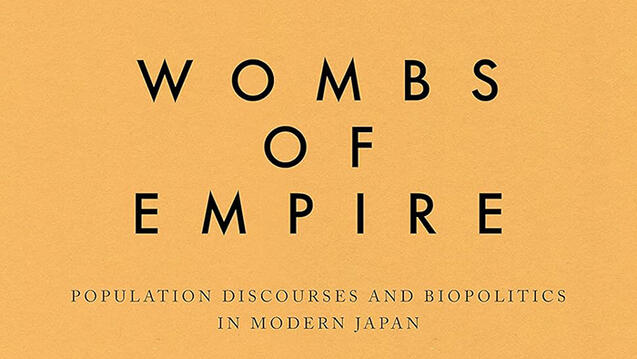
Asia Pacific Perspectives
Demographic Challenges in East Asia
This issue showcases the latest research by scholars studying the history of population control in East Asia and the contemporary demographic challenges facing East Asian nations today.

Developmentalism, Christianity, and Population Decline in East Asia
By Elizabeth LaCouture
Academics and pundits once characterized East Asia as a place of over-population, while today the region is home to the lowest fertility rates in the world. This article explores an unusual source for this population decline – nineteenth century US Christian ideology, missionaries, and networks that developed into twentieth century social science of the family and Cold War development programs.

Japan’s Demographic Changes and Opportunities: A Tale of Two Cities
Photo Essay by Ryoko Yamamoto
This essay highlights the challenges and opportunities of demographic change through the stories of two communities: Tsushima City 津島市 in Aichi Prefecture 愛知県 and Ikuno Ward 生野区in Osaka City 大阪市. Both communities are facing a rapid population decline. While the demographic shift makes it difficult for them to sustain traditional ways of life, it also brings opportunities for new possibilities.

Aging in a Changing Japan: Gendered Adaptation to Changing Family Structure
Graduate Student Paper by Miki Izu and Clayton Chalmers
Despite being very healthy, Japanese elders are not very happy. This paper explores how changes in Japanese family life contribute to low subjective well-being among the elderly. Declining marriage rates and declining co-residency rates have made it harder for Japanese elders to get the support they need. Additionally, men are having a much harder time adapting to these changes than women, due to different social networks.

Wombs of Empire: Population Discourse and Biopolitics in Modern Japan
Book Review by Bonnie Tilland
Sujin Lee’s Wombs of Empire: Population Discourse and Biopolitics in Modern Japan concisely delineates the “problem of population” in Japan between the late 1910s and the 1950s. The book’s strength is in its straightforward presentation and organization of population discourse in diverse but overlapping fields, selectively using theory to demonstrate the far-reaching, and sometimes surprising, effects of population management.

The "Population Problem" in Pacific Asia
Book Review by Jixi Yang
Low fertility rates have become a major concern for some advanced Asian economies. Tax relief, housing subsidies, baby allowances, etc., are common policy practices used by governments to increase fertility rates and marriage rates. In Stuart Gietel-Basten’s The "Population Problem" in Pacific Asia, the author calls for moving away from this two-dimensional policy response.
Publish with Us
Contribute to a peer-reviewed, interdisciplinary journal.



